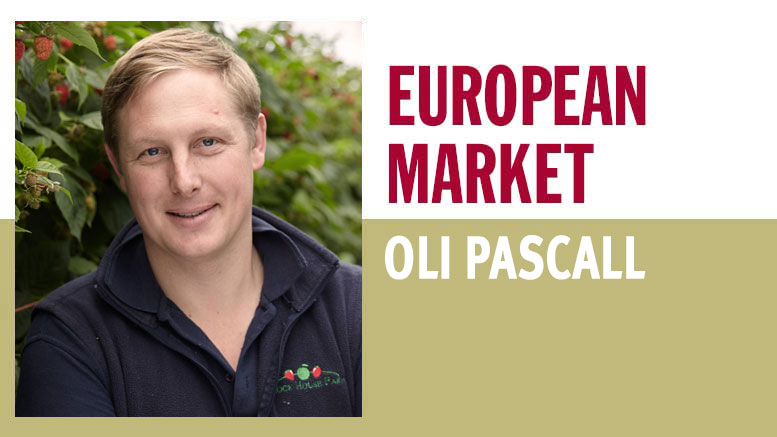Fighting For Survival
January 9, 2024 | 4 min to read
Soft fruit growers in the U.K. face an unprecedented crisis despite efforts to recover from the pandemic, exacerbated by soaring production costs, inflation rates over 11%, and ongoing labor shortages. The increase in minimum wage for seasonal agricultural workers has added strain, with industry leaders fearing reduced food volumes and a greater reliance on imports. Urgent action is required to ensure growers can invest in sustainable practices while consumers must accept higher prices for quality British produce.

Times have never been tougher for soft fruit growers.
Originally printed in the December 2023 issue of Produce Business.Just when the industry was looking to recover from the pandemic, we’ve been plunged into an even greater state of crisis triggered by a number of factors. Increased production costs linked to soaring energy tariffs and the rate of inflation peaking at 11.1% in October 2022 (a figure that is even higher in agriculture, anything from 18-22%); supply chain issues linked to Brexit and the war in Ukraine; last year’s fuel shortages and the continuing supply of labor issues — these all combine to create an unprecedented and complex set of challenges, which are having a profound impact on growers.
Last year we forecasted double-digit inflation in the cost of production and we, like so many, are actively trying to address this by introducing innovative growing systems, accessing renewable energy supplies and even changing pack sizes to optimize transport efficiency. The reality is that unless retailers adopt an open-minded approach to this level of inflation, the country’s growers are going to be forced to reduce the volume of food that the U.K. population needs. The result will be a reliance on imported goods and a failure for consumers to access the high-quality British produce, which is grown to some of the highest standards of production in the world. It is also a step backward in terms of reducing the carbon footprint of the nation’s shopping basket and encouraging the population to adopt a healthier diet.
Such testing conditions will almost certainly also lead to a slump in the level of investment in the industry — an industry that has traditionally been characterized by the regular introduction of ground-breaking technologies and cutting-edge growing techniques, many of which have not only increased the quality of the fruit produced, but also served to tackle the climate change agenda. These technologies also helped to cement the U.K.’s credentials as a leading force in soft fruit production.
The increase in pay for workers on the SAWS scheme in line with the minimum wage — now £10.42 ($12.70) per hour — was a real blow.
Labor shortages are nothing new. We’ve endured years of fighting the problems that were predicted post-Brexit and prior to that, contesting the low number of workers permitted under the SAWS quota. But the increase in pay for workers on the SAWS scheme in line with the minimum wage — now £10.42 ($12.70) per hour — was a real blow. The handling of the proposed increase is unacceptable since the decision was originally made, without any consultation with the industry and negating any opportunity for growers to adjust their plans for the upcoming season.
The U.K. Farm to Fork Summit has done little to resolve matters and has been alluded to as a PR stunt that failed to deliver a plan to tackle the issues faced by farmers and the food system. In addition, the preceding comments by Home Secretary Suella Braverman did little to inspire confidence in the government’s genuine understanding of the labor challenges faced by the sector.
As a business, Clock House Farm is well established and has plans in place to help endure the current difficult trading conditions, but growers should be focusing less on survival and more on progress and evolving the sector.
Urgent action is needed NOW to help producers navigate their way through these troubled waters to ensure the future of soft fruit farming. I recently chaired a NextGen Fruit Group meeting that was well attended and, once again, highlighted the fact that the U.K. has a strong generation of growers coming through who share the same commitment to moving the industry forward.
But regardless of their enthusiasm, the fact is, despite the cost-of-living crisis, the U.K. general public needs to accept that if we as growers invest in supplying better quality fruit that has been produced in line with the journey towards net zero, then this should reflect a higher price tag.
According to a report by the United States Department of Agriculture, the U.K. is trailing in terms of how much it spends on food, with Norway, Switzerland, Israel, New Zealand and Finland investing far more in food expenditure, led by Norway at $3,804.6 per capita in 2022. In comparison, the U.K. was recorded as spending $2,313.5.
Isn’t it time we as a nation woke up to the fact that it makes sense to pay more for healthy, sustainably produced food, with the retailers taking responsibility for ensuring any increased price delivers a fairer deal to the growers?
Surely one of the U.K.’s most revered professions deserves to be not just kept alive, but celebrated?

Oli Pascall is the managing director of Clock House Farm and represents the fourth generation of the family-run business. Clock House Farm is a long-standing, highly professional grower of soft and tree fruit.
20 of 32 article in Produce Business January 2024

